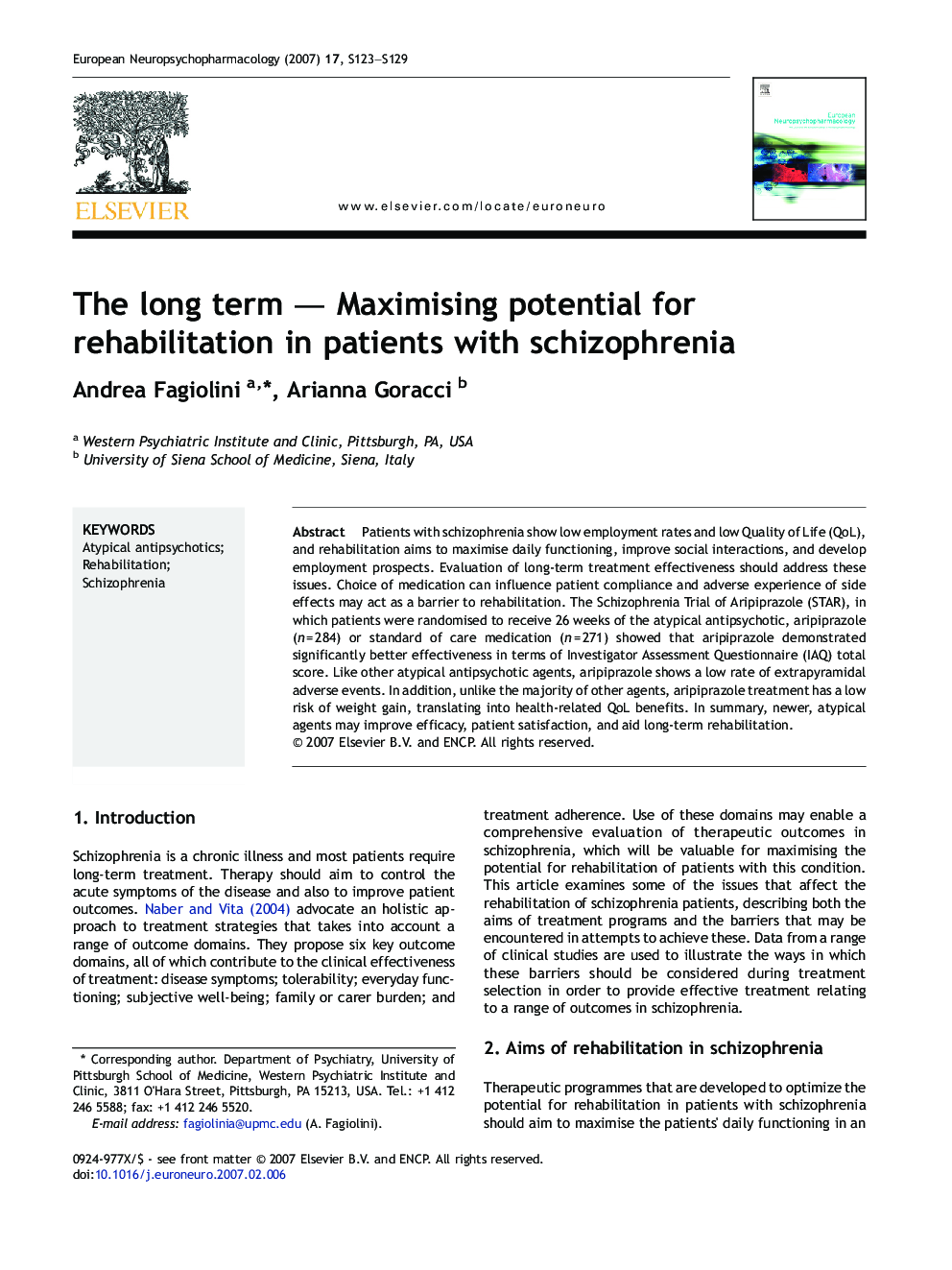| Article ID | Journal | Published Year | Pages | File Type |
|---|---|---|---|---|
| 320079 | European Neuropsychopharmacology | 2007 | 7 Pages |
Patients with schizophrenia show low employment rates and low Quality of Life (QoL), and rehabilitation aims to maximise daily functioning, improve social interactions, and develop employment prospects. Evaluation of long-term treatment effectiveness should address these issues. Choice of medication can influence patient compliance and adverse experience of side effects may act as a barrier to rehabilitation. The Schizophrenia Trial of Aripiprazole (STAR), in which patients were randomised to receive 26 weeks of the atypical antipsychotic, aripiprazole (n = 284) or standard of care medication (n = 271) showed that aripiprazole demonstrated significantly better effectiveness in terms of Investigator Assessment Questionnaire (IAQ) total score. Like other atypical antipsychotic agents, aripiprazole shows a low rate of extrapyramidal adverse events. In addition, unlike the majority of other agents, aripiprazole treatment has a low risk of weight gain, translating into health-related QoL benefits. In summary, newer, atypical agents may improve efficacy, patient satisfaction, and aid long-term rehabilitation.
